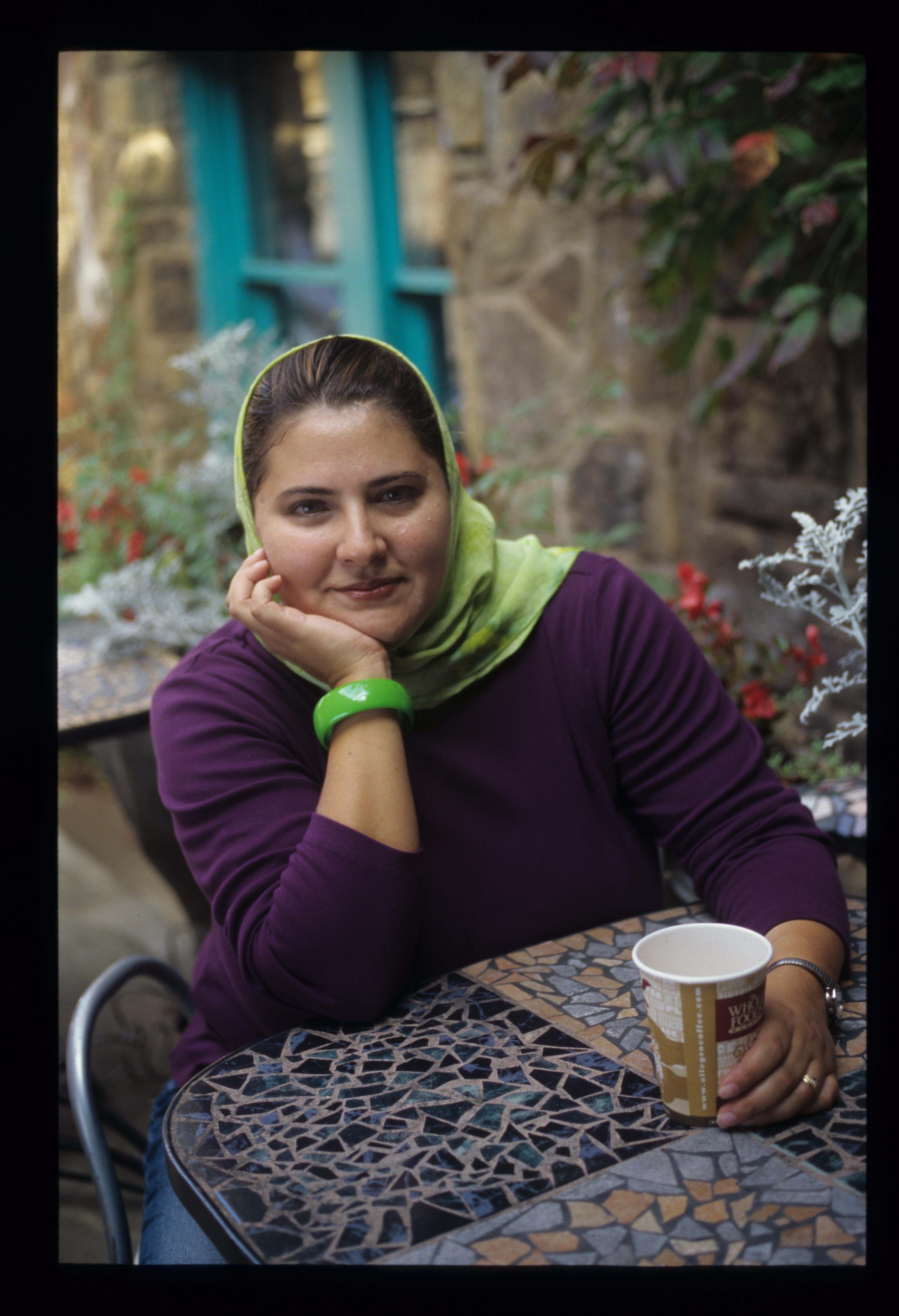FAYETTEVILLE, Ark. — In her first novel, The Girl in the Tangerine Scarf, Mohja Kahf, an associate professor of English at the University of Arkansas, immerses readers in the world of Khadra Shamy, who grows up in a devout Muslim family in the middle of Indiana.
“I wanted Americans to see their country through the eyes of these specific Muslim newcomers who have a pointed critique of mainstream American values,” Kahf said. “I wanted readers to be disoriented from their habitual view of themselves — in a friendly sort of way.
“At the same time, the novel also has Muslim characters who hold a lot of assumptions about Americans. By the end of the novel, many of those assumptions have been dismantled — for the reader, if not for all the Muslim characters.”
Although Kahf was born in Syria and spent some of her childhood in Indiana with her devoutly Muslim family, the novel is not primarily autobiographical. She pointed out two clear divergences. First, the author’s mother, who has “the sweetest temperament,” bears little resemblance to the fictional Khadra’s mother, an important figure in the novel. Second, in the real Indiana of Kahf’s time, “there were many more incidents of violence and vandalism” than could be included in the novel.
“Part of the original impetus for the novel was that I wanted my daughters to get a sense of the tight-knit community they missed — both the aunties and the uncles and the dark side,” Kahf said.
The fictional family and the aunties and uncles of the neighborhood are a cast of characters who nurture, challenge and aggravate the young Khadra, who grows during the course of the novel to become “a woman true to herself.” Kahf created some characters, such as the Syrian poet and the German professor, based on experiences in her own life, people “I had found because I needed them.” One of the warmest and most complex characters is Téta, who is the protagonist’s Syrian aunt and a composite of a number of women from the author’s life.
“Autobiography was a hamper I had to get away from for the story to work,” Kahf said. “I had to lift off and let the story become its own thing and tell a truth in a larger way.”
The author shows the adult Khadra Shamy using her art — photography — to convey a complex picture of Muslim lives. In one scene, she considers how best to photograph the familiar scene of a prayer hall and decides to use low camera angles to emphasize the experience of prayer.
“It is not the prayer she will photograph, not from the outside, but: what does the world look like from inside this prayer?”
Kahf said her novel also “invites discussion of where Muslims fit in the American religious landscape amongst Quakers, Catholics, the Amish, orthodox Jewry and others. It invites comparison between the recent immigration to this country of very observant Muslims and the history of Protestants who fled religious persecution in Europe to come to America.”
Within the novel are “secret embedded signals” pointing to other authors whom Kahf loves. Early on, “a caramel colored girl” with a bag of shoes is an echo from the Sandra Cisneros novel The House on Mango Street. One kindly individual in Indiana is the Quaker neighbor, Mrs. Moore. Her name comes from a character in E.M. Forster’s A Passage to India, “a tolerant elderly British woman who has an experience of interfaith grasping and understanding, and it unsettles her deeply.”
Kahf, who is on the faculty of the J. William Fulbright College of Arts and Sciences, has examined the lives of Muslim women in academic writings and in poetry. She is the author of Western Representations of the Muslim Woman: From Termagant to Odalisque and of E-mails from Scheherazad, which was a finalist in the 2004 Paterson Poetry Prize. She is at work on a collection of short stories and a novella based on her column, “Sex and the Ummah,” written for the online magazine Muslim Wakeup!
Contacts
,
